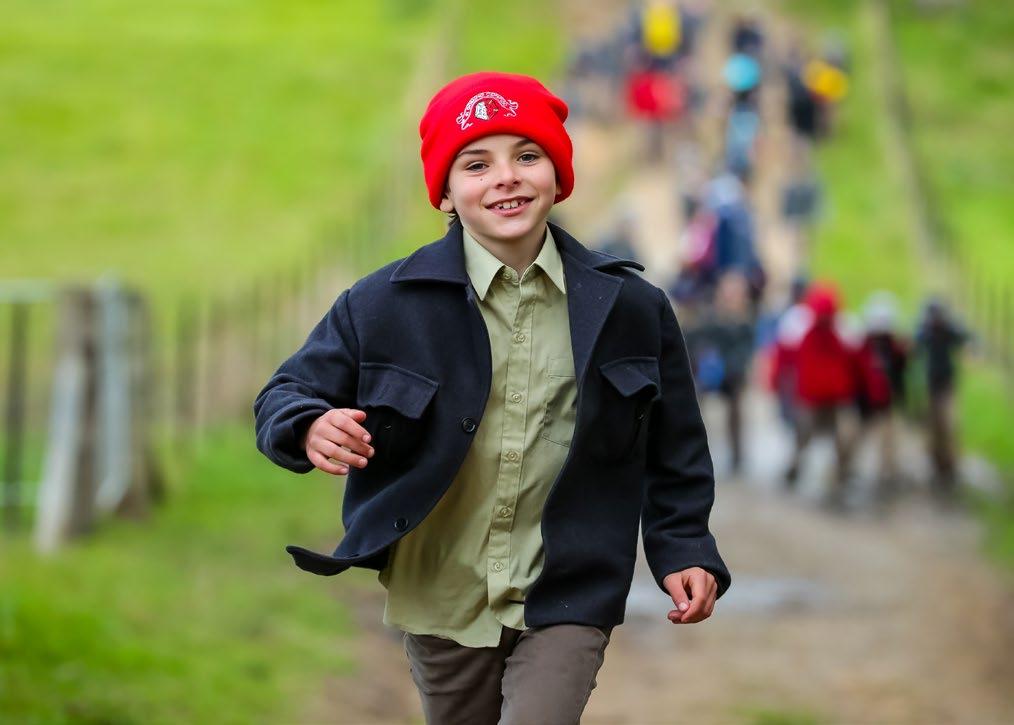Tudor House A – Z
After School Care For Day Students
PK-6 day students may join the boarders in After School Care on Monday, Tuesday, Wednesday and Friday afternoons from 3.30pm and Thursdays following sport at 4.30pm.
Parents must inform the School via email tudor_asc@kings.edu.au if they would like their son / daughter to go to After School Care.
Charges – see Fee Schedule:
• 3.30pm – 5.00pm
• 5.00pm – 6.00pm
• 6.00pm evening meal
• Casual boarding please book via email to Sharon Gough sgough@kings.edu.au
Arrival and Departure Times
Weekday school hours M, T, W, F 8.00am to 3.30pm, Thursday 8.30am to 4.30pm.
Students are not permitted to be on school grounds before 8.00am each morning. This is to ensure that our students are kept safe by active supervision of staff.
Students who are still at school after 3.30pm (except on Thursdays for sport) must be registered with the School Office for After School Care
Attendance, School Absence
In the case of a student’s inability to attend school, parents are asked to observe the following procedure:
If your son/daughter is away from school, parents must log into KingsNet, click on the ‘Absence’ icon on their parent dashboard, complete and submit the online form. Late arrivals or early pick ups/departures must also be logged in KingsNet prior to the event.
In the case of infectious diseases, a certificate signed by a doctor to say that he/she is out of quarantine. These notes and certificates are required by law. They must be handed to the School Nurse. Non-immunised students may be required to remain at home when the School has been notified of an outbreak of a vaccine preventable disease.
In the case of another member of the family contracting an infectious disease, the consent of the Head of School must be obtained before a student returns to school.
Any K-6 student who arrives after 8.30am should report to the Health Centre to be signed in an obtain a late note to present to their teacher. His/her name is then noted on the School Database. If a child needs to leave early, he/she must present to the HC in order that they are signed out on the School Database.
If a student is absent on a Friday because of illness, the School needs to be notified about their availability for sport the next day.
Students who receive three ‘red diary comments’ in a half term will be issued with a detention. These detentions are conducted by the Deputy Head - Students and Community. During a detention, students will fill in a ‘Reflection Form’. The teachers will discuss, with each student, the reasons for their detention and suggest strategies to help them avoid future detentions. Students are also supported to consider how they might repair any relationship they have damaged in order to ‘make it right’. A notification of the detention will be placed in their diary. If the student is a boarder, parents will also be emailed. A bad comment has a short life! At each half and end of term, all such comments, ‘disappear’. Therefore, if a student has two bad comments in any half term period, he/she has the incentive to modify his/her behaviour so as to avoid a detention and loss of Colour points.
For more information about discipline matters, please see the School Diary and the Discipline Levels, at the end of this handbook.
Bicycles
See Fee Schedule for charges.
Assemblies
K-6 students gather twice a week on Anderson Courtyard at 8.30am for Flag Parade. There is an Assembly on the first day of each term. A weekly Assembly takes place in the War Memorial Hall. Special Assemblies may occur during the course of the year and are noted in the school calendar.
Behaviour Management
The School is required to manage behaviour in such a way that student and teacher ‘Rights and Responsibilities’ are maintained.
Tudor House has adopted a levelled Behaviour Management Program that aims to support these rights and responsibilities. It is intended that this management program will ensure swift action, that the expected positive behaviour is reinforced and that parents are made aware of any behavioural difficulties.
Many boarders and day (Years 3-6) students keep bicycles at school. Undercover bike racks are provided. Every student must wear a helmet when on their bike. Students must ride their bikes in the same direction as traffic on school driveways. Students and parents are responsible for the maintenance of their bicycles. Sharing of helmets or bikes is not permitted. Mountain bikes are the preferred type of bike.
Birthdays
Parents of day students’ may wish to send small cakes/treats to school to mark their son/daughter’s birthday. Please be mindful that we are a nut aware school and we ask that you check the ingredients of any food sent into school to avoid allergic reactions. The catering staff ensures that boarders have a celebratory cake to share with their friends on their birthdays.
11
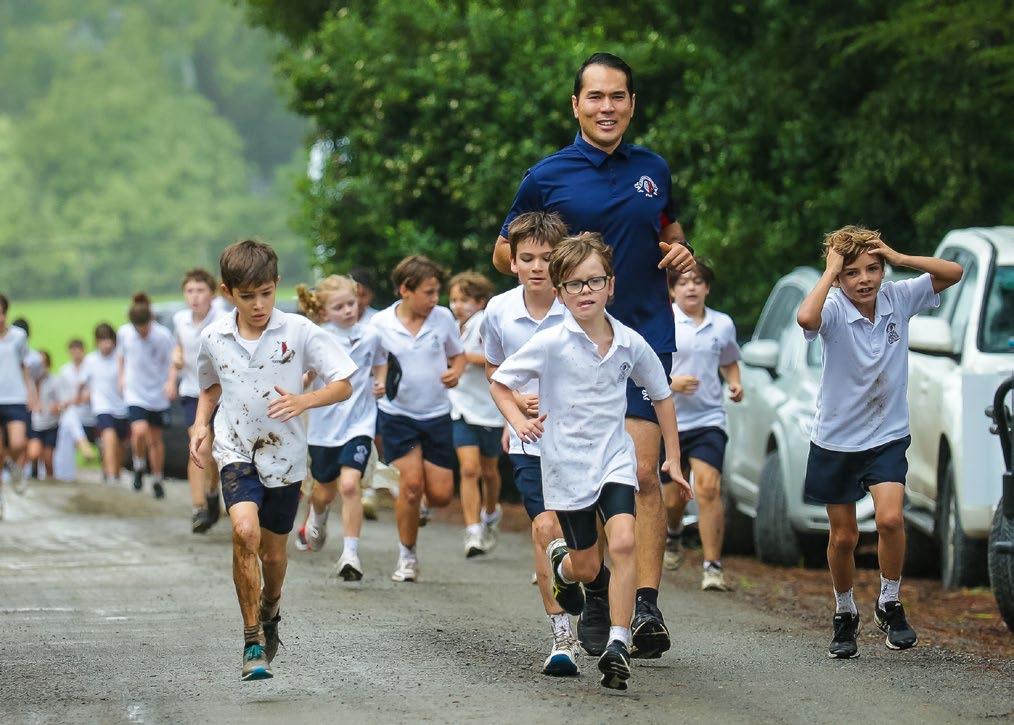

12
Blue Bar
This is an award that students can achieve by completing a range of challenging physical tasks (see the School Diary for more information).
Bus Services
To request your child catch the bus, a booking must be made via KingsNet. For any assistance please contact the office (02) 4868 0000 for more information.
Berrima Buslines run school bus routes throughout the Southern Highlands. For specific information on bus routes please call Berrima Buslines on (02) 4871 3211. They can provide up to date information on route maps, timetables and connecting buses if required. Students will require a bus pass. You can apply for a bus pass online at: www.transportnsw.info/school-students
Bus Behaviour: There is an expectation of acceptable behaviour while travelling on buses on school days. Please refer to the School Diary and Discipline Levels at the back of this handbook.
Camps And Excursions
All classes are involved in a number of excursions that are designed to support learning that takes place in the classroom. Some of these learning experiences will take place at school or further afield. All students in Years 3–6 are involved in overnight camps held during the year. Whilst these camps have educational outcomes, they are also an integral part of our Social and Leadership programs. Information about uniform and requirements for camps/excursions will be sent to parents/carers prior to the event.
Cash
There are few opportunities to spend money at school and it is recommended that students not bring money to school, except in special circumstances. On such occasions it would be advisable for day students to hand their money to his/her class teacher for safekeeping immediately on arrival. Boarders should give any cash brought to school to the Head of Boarding. Students are not permitted to sell articles to each other whilst at School. This includes fundraising via chocolate sales.
Casual Boarding
To book day students (Year 2-6) into casual boarding please contact sgough@kings.edu.au
Change Of Address
Any change of address, email or telephone number, either for home or business, can be edited by parents through their dashboard on KingsNet or should be sent in writing (or via email) to the School Office.
Chapel
As outlined in our School Mission Statement, The King’s School, Tudor House is a Christian community and as such, our weekly Chapel services are integral to the growth and flourishing of our community. Each week, the whole school meets to hear from the Bible, to consider its application and ultimately to understand God’s grace and love.
Chapel is an important part of school life. Our students attend one half hour Chapel service each week. Chapel services are generally led by the Deputy Head - Students and Community, Head of school or a local Minister. During the year there are special Chapel services, e.g. Remembrance Day and Foundation Day. A Carol Service is held at the end of the school year. Pre-Kindergarten students attend Chapel from Semester 2.
Charities
Social action is an important aspect of Tudor House and students are encouraged to support charities. Each Colour House supports a selected charity for a term each year. On occasions, arrangements are made to help fundraise for a specific charity i.e. CanTeen Australia.
Co-Curricular Activities
The School offers a variety of co-curricular activities at various stages during the year, e.g. sport, debating, swimming, tennis, water polo, robotics, public speaking, poetry recitation, chess, music and choir. Some activities have a termly fee based on resources and staffing requirements. An equestrian program for all ability levels is offered in partnership with Rosthwaite Farm, Moss Vale.
Colour House System
Every student in K-6 is allocated to one of three Colour Houses, each with its own Colour Housemaster. These Colour Houses – Blue, Red and White – are major vehicles for pastoral care in the School. Vertical Colour families meet throughout the term for Personal Development/Health sessions with the Colour Housemaster and Colour House teachers.
Years 3-6 Colour House groups also participate in hotly contested Colour Ball Games each week in the Gymnasium. Great rivalry exists between the Houses at such events as the Swimming, Athletics and Cross Country Carnivals.
A House Competition exists across Tudor House incorporating results from sporting competitions, a class merit program (White Cards) and through students’ Plus Scores and House Points. A student can also lose points for his/ her Colour House through detentions. This Competition generates considerable excitement and House pride amongst the students, leading to the awarding of the Colour Cup at the end of each term at ‘Three Cheers’. Parents are welcome to attend ‘Three Cheers’. Staff are constantly looking to ‘catch students doing right’ - and are able to award House points based on our 8 School Values. These points are given out to celebrate student success and to explicitly recognise and name positive contributions to our community. Points are announced each week at Assembly.
Communication
There are various ways of communicating with the School. It is recommended that initially you meet with your child’s class teacher. Formal meetings are organised in advance, via your son/daughter’s diary, by email or by phoning the School Office. The Head of School has an open communication policy and is more than willing to discuss issues of concern with parents. However, it is appropriate to initially discuss the matter with their class teacher – unless it is a particularly serious matter or one involving General Policy.
13
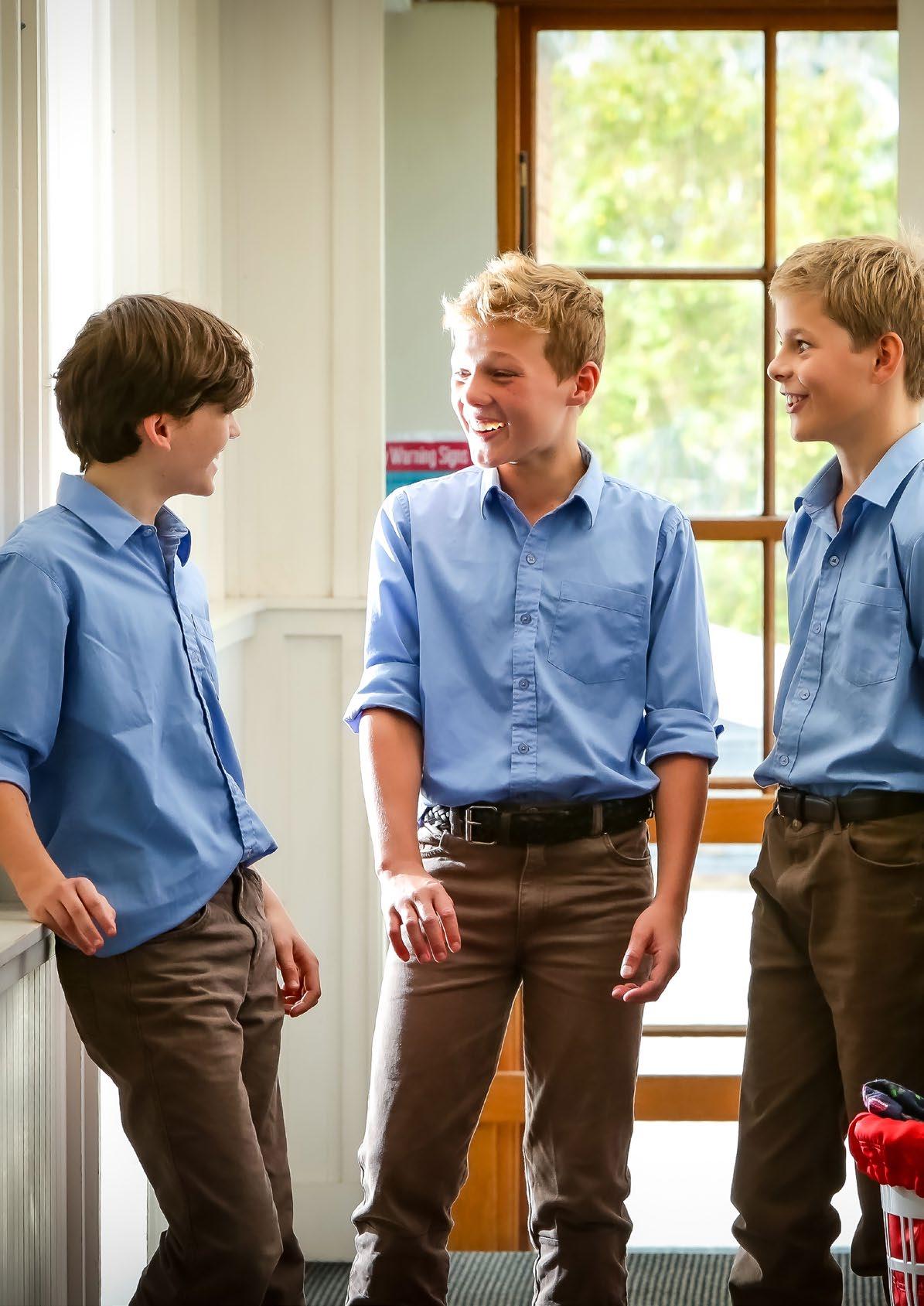
Curriculum
Tudor House seeks to educate the whole person and bring them to their full potential, academically, physically, socially, creatively and spiritually. To this end, we provide a broad, balanced, contemporary curriculum providing an enriching school experience that is significant, challenging, engaging and relevant to the needs of each child.
Tudor House is an authorised Primary Years Programme School (an International Baccalaureate World School). IB World Schools share a common philosophy – a commitment to high-quality, challenging, international education – that we believe is important for our students. The PYP focuses on the development of the whole child as an inquirer, both in the classroom and in the world outside. A balance is sought between the acquisition of essential knowledge and skills, development of conceptual understanding, demonstration of positive attitudes and taking of responsible action. Where authentically relevant, a range of disciplines, including Science, History and Geography are integrated into the Units of Inquiry. This approach is balanced by providing explicit and differentiated learning experiences in the areas of Mathematics and Language.
Students learn through a conceptual lens as they investigate global issues. They inquire through six trans-disciplinary themes that transcend the confines of traditional subjects.
With a focus on skill development, students are engaged in their Approaches to Learning.
Curriculum is planned and delivered collaboratively across the School.
A ‘Universal Design for Learning’ model supports quality differentiation in all learning environments.
Students also attend Music, Visual Arts, Woodwork, Physical Education, Biblical Studies, Library and French classes, taught by our single subject teaching team. Information and Digital Literacy (Technology) is considered a tool to enhance learning and is fully integrated into the students’ learning experiences.
The transdisciplinary themes are:
• Who we are
• Where we are in place and time
• How the world works
• How we express ourselves
• Sharing the planet
• How we organise ourselves.
Inquiry-based learning is the leading pedagogy of the PYP. Student-initiated inquiry is planned for and fostered, an approach which nurtures independence and results in building enduring understandings.
The IB Learner Profile describes a list of attributes that promote academic rigour and establishes a personal value system leading to international-mindedness. We seek to develop students who are Principled, Caring, Open-minded, Balanced, Reflective, Inquirers, Thinkers, Communicators, Risk-takers and Knowledgeable.
At a discipline level, our curriculum contains the following elements:
English
• Oral Language and Communication Vocabulary
• Phonic Knowledge
• Reading Fluency
• Reading Comprehension
• Creating Written Texts
• Spelling
• Handwriting
• Understanding & Responding to Literature.
Mathematics
• Representing Whole Numbers
• Combining & Separating Quantities
• Forming Groups
• Geometric Measure
• Two Dimensional Spacial Structure
• Three Dimensional Spacial Structure
• Non-Spatial Measure
• Data
• Chance.
Science and Technology
• Working Scientifically
• Living World
• Material World
• Physical World
• Earth and Space
• Digital Technologies.
Personal Development, Health and Physical Education
• Personal Health Choices
• Interpersonal Relationships
• Safe Living
• Games and Sports
• Gymnastics
• Dance
• Active Lifestyles
• Growth and Development.
Human Society and Its Environment
• Personal and Family Histories
• The Past and the Present Australian History
• Places
• People and Places
• The Earth’s Environment
• People of the World.
Creative and Practical Arts
• Music
• Visual Arts
• Dance
• Drama
• Woodwork.
In all PK-6 classes, our learning programs are differentiated in order to meet the varying needs of our students.
A curriculum overview is provided each term by your child’s class teacher.
Dress Regulations
Students wear a hat at all times when outdoors.
Baggy Cap with Full Blues for boys. Bobby Hat with Full Blues for girls.
Floppy Blue Hat with Half Blues and with Khakis for boys and girls.
Boys
Full Blues
Blazer, grey shorts, blue shirt, tie, grey socks, baggy blue cap, black shoes (NOT riding boots), with or without navy Tudor Rose jumper.
Half Blues
Grey shorts, blue shirt, navy jumper, grey socks, floppy blue hat, black shoes. When wearing half blues, shirt sleeves must be rolled-up to the elbow.
15
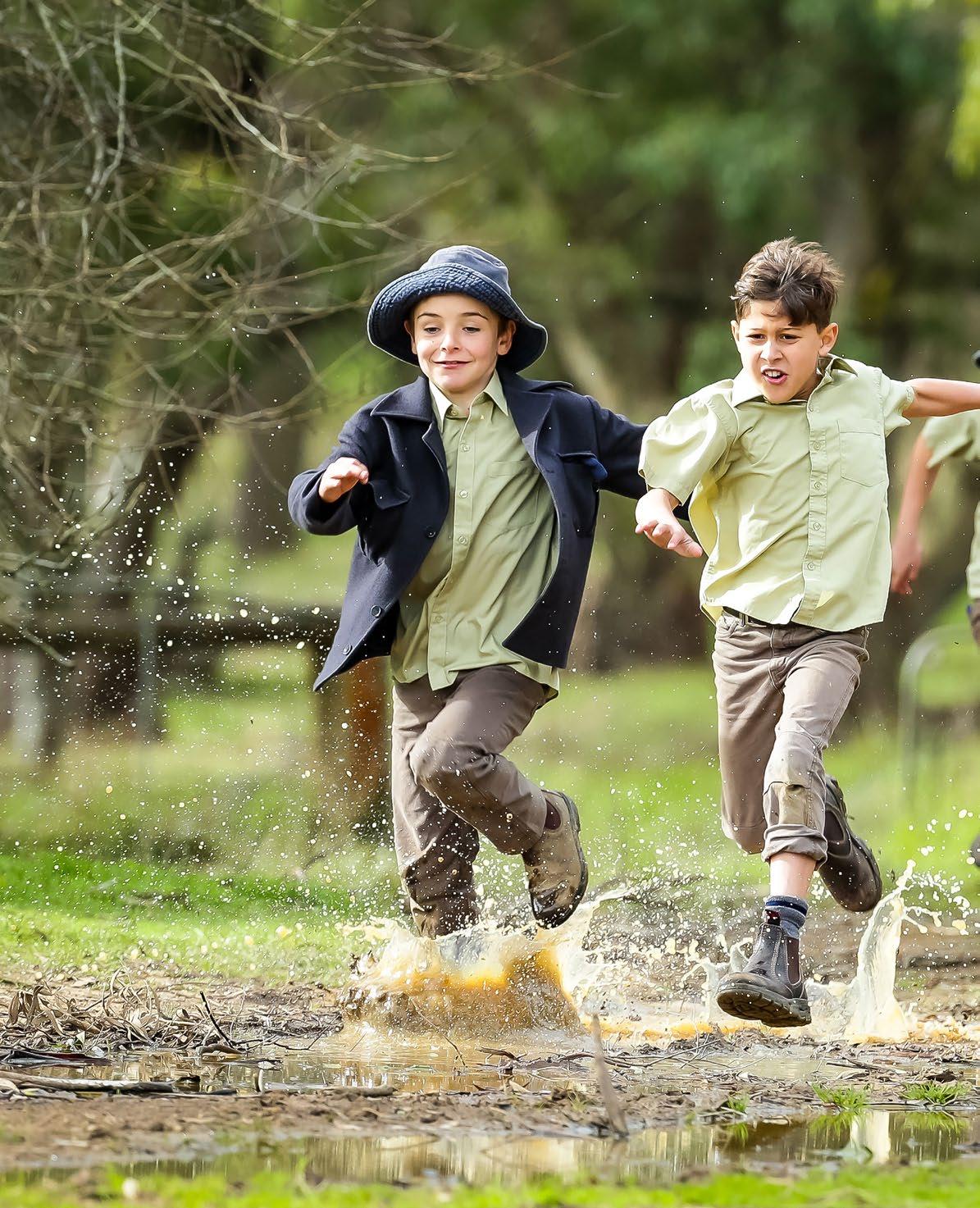
16
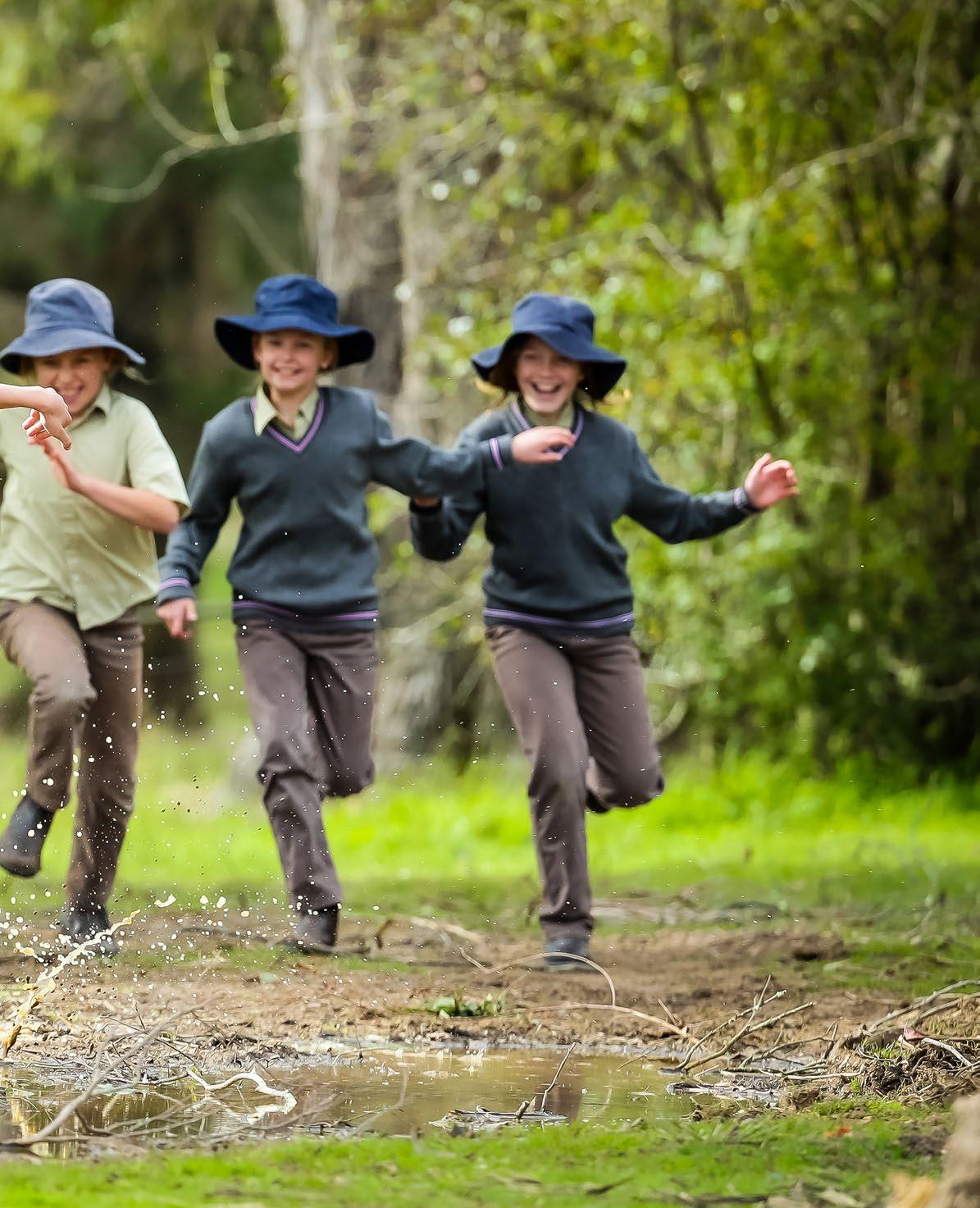
17
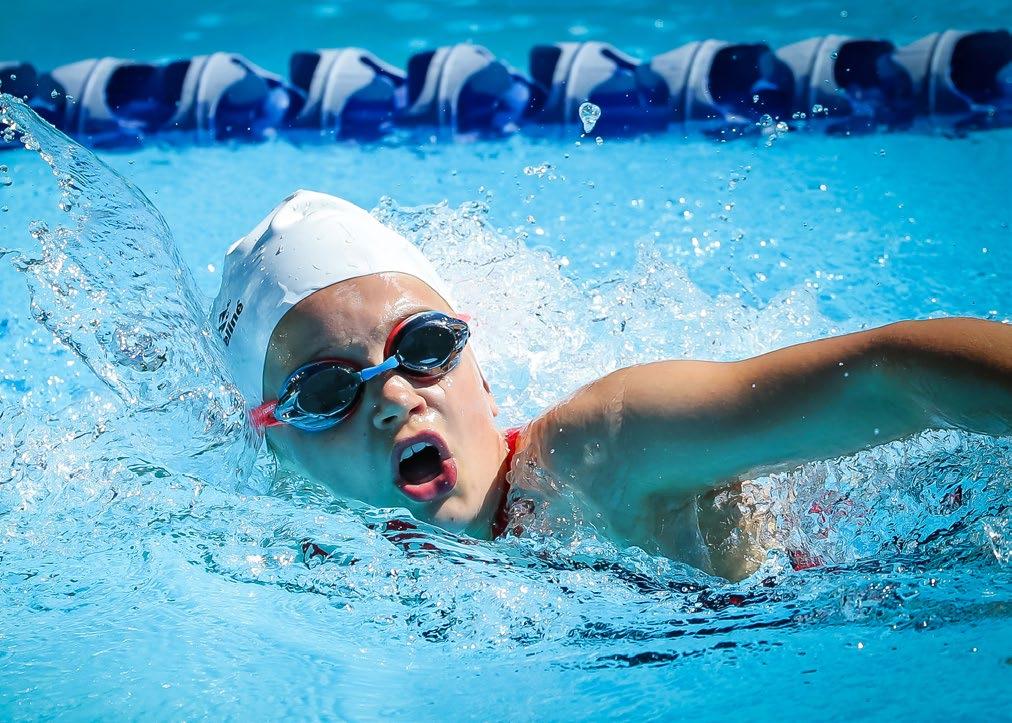
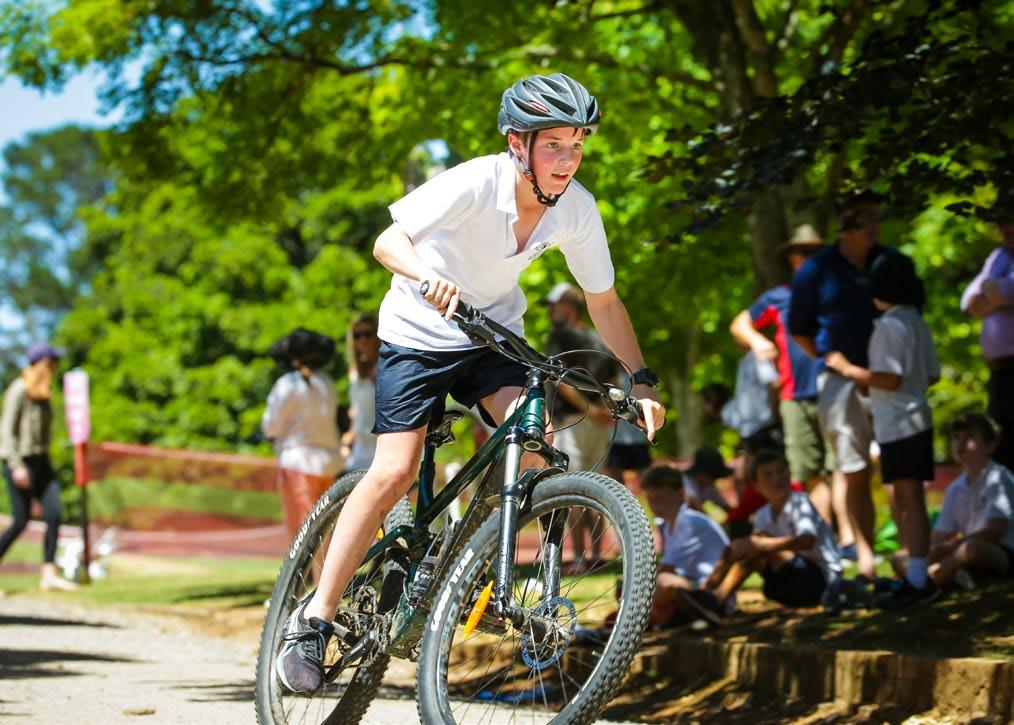
18
Sport (and on Thursday)
Summer Sport Terms 1 & 4
White Tudor House polo T-shirt, blue shorts, white ankle socks, trainers (basically white).
Winter Sport Terms 2 & 3
Colour House jersey, blue sports shorts, Tudor House rugby socks, and trainers (basically white).
Full tracksuit must be worn to and from School every Thursday.
Depending on their sport of choice, students will be required to provide their own additional equipment, e.g. white Greg Chappell style cricket hat, cricket bat, protector headgear, shin pads and mouthguard.
Girls
Full Blues
Blazer, winter tunic, blue shirt and tie (Terms 2 and 3) OR summer dress (Terms 1 and 4), navy socks or navy tights (with winter tunic only), red bobby hat, black shoes (NOT riding boots) with or without navy Tudor Rose jumper.
Half Blues
Tunic/blue shirt OR dress, navy jumper, long navy socks or navy tights (with winter tunic only), floppy blue hat, black shoes.
Hair must be tied up neatly with a Tudor House ribbon if it falls below shoulder length.
Sport (and on Thursday)
Summer Sport Terms 1 & 4
White Tudor Rose t-shirt, blue cotton sports skirt or shorts, white ankle socks, trainers (basically white).
Winter Sport Terms 2 & 3
Colour House jersey, blue shorts/skirt, Tudor House rugby socks and trainers (basically white).
Full tracksuit must be worn to and from school every Thursday.
Khakis (for students in years 3–6)
Summer: Khaki shirt, khaki shorts, grey socks, brown riding or work boots, floppy blue hat.
Trainers may be worn after school and at weekends.
Winter: Moleskins, brown belt, khaki shirt, grey jumper and brown riding or work boots to be worn. Lumber jacket if required. Years 3–6 girls and boys change from full blues to moleskins on arrival at school.
K-2 boys and girls may come to school wearing moleskins and riding boots in winter.
Pre-Kindergarten
Students wear modified Tudor House uniform – please refer to the Uniform list at the end of the handbook.
Weekend Sport Uniform
On Saturdays, students are to arrive and leave all sport locations, either home or away games, in their appropriate sport uniform. This includes their tracksuit in the winter terms, Terms 2 and 3.
The navy blazer and baggy cap are to be worn with cricket whites for cricket.
Students Travelling by Private Car
Students must wear their Full Blues when travelling out of school. Parents are asked to co-operate with the School to ensure that whenever their child is wearing the School uniform, he/she is neatly and properly dressed and shoes are clean.
For more information about uniforms please refer to the Uniform Guide
Educational Support Services
Our Educational Support Services program is designed to cater for students who require extra assistance with their learning. Involvement in these support sessions is fluid, depending on the needs of the child and the areas of learning requiring ESS. For more information please refer to the ESS Booklet
Emergency Procedures
The School has appropriate plans and procedures in place, in the event of the need to evacuate the School buildings. Emergency drill procedures are displayed throughout the School, and practices are conducted on a regular basis for both students and staff. The Emergency Evacuation Meeting point for Tudor House is Hamilton Lawn
Lockdown procedures are also in place.
Facilities
At Tudor House, we have well-resourced teaching and learning spaces.
The classrooms have excellent ICT facilities, including interactive BenQ Screens and excellent educational resources.
Students are able to access a 1:1 school owned device to support their learning. Students in Pre-K–2 use iPads, while students in Year 3–6 use Macbook Pros. We have Visual Arts and Woodwork classrooms, a Music Centre with a Drama Studio as well as a learning space big enough for large group rehearsals, a number of individual lesson/practice rooms, instrument storage and office spaces.
We have a purpose-designed Learning Hub – A Library and Education Support Services. The War Memorial Hall has a good-sized stage and large seating capacity, stage lighting, AV and sound system that enable it to be used for numerous events throughout the year. Events include, School Assemblies, musical productions and performances, both from outside suppliers and School based performances.
Our beautiful School Chapel is used for weekly Chapel services as well as Boarders/Community services, Old Tudorian reunions and family celebrations. The Dining Room is central to our School life. The whole school gathers for a sitdown lunch four days each week, with an outdoor picnic lunch on Thursdays. The Boarders’ meals are generally eaten in the Dining Room with the exception of BBQs and picnics. A large open hearth fireplace warms the Dining Room in the winter months. Most of the Dining Room furniture dates back to early school foundation days.
The Tudor House sporting facilities are extensive. We have Westfield, RB Darke and Fairfax fields, all with wickets in summer for cricket and multiple cricket nets. The Cricket Pavilion located at our cricket fields, is a multi purpose space for use during sports matches but also serves as an additional learning area or small event venue. We have the Arnott multipurpose courts, a heated swimming pool, a gymnasium and a dam for canoeing and fishing. In addition, there are further play spaces: Lower School, Anderson Courtyard and Hamilton Lawn,
19
Kahiba Outdoor Education/ Camping area, Archery Range, Mountain Bike Track, Traverse Climbing Wall, Mini Kahiba, Obstacle Course and a Low Rope Course.
The Paddock to Plate ‘farm’ area includes a chook pen, orchards, vegetable pods, sheep and cattle enclosures.
Food
All meals are provided for boarders and day students. Morning tea and lunch (and afternoon tea where applicable), are provided and students are encouraged to try new food. All food is prepared in the School kitchens, served in the Dining Room or outdoors as a picnic on a Thursday. The kitchen can cater for specific dietary requirements following receipt of your Dietary Requirements form, via the Health Centre. Our caterer is Chartwells.
Gum
Chewing gum is prohibited at Tudor House.
Hair/Jewellery at School
Hair must be clean and tidy, well brushed and combed. Extreme styles of haircuts are not permitted.
It is assumed that hair will not be cut so short or grown so long as to invite comment, nor will it be streaked, tinted, or with a cut-in pattern or part. Girls should wear hair tied neatly with the School ribbons if shoulder length or longer.
Jewellery, apart from a medic alert bracelets and a plain watch, are not worn to school.
Regular uniform infringements are noted in the School Diary.
History Of Tudor House
On 12 October, 1897, over 125 years ago, our founder, Mr Wildred Inman started a Preparatory School for boys based on the merits of a holistic education. The School’s earliest days were in Sydney’s Eastern suburbs (Erowol, Bellevue Hill and later, Carrara, Vaucluse), moving to Hamilton House, Moss Vale in 1902, which was renamed Tudor House after the Inman family’s estate in England.
Inman promoted a school that had at its core, the desire to open students’ minds to the amazing opportunities of life; such opportunities founded on the merits of
sound teaching and learning. Tudor House students tread in the footsteps of many fine Old Tudorians.
We’re all proud of the tremendous work of those who have guided the School through its history.
There have been 16 Heads of School at Tudor House. Some at the School for only a short time and others serving the School for many years. Each has made a vital contribution, adding their own narrative to the Tudor House ‘pageant,’ (Tudor House, The First One Hundred Years. C Ashton, 1997). The School was bought by The King’s School in 1942.
Our Head of School, Mr Adam Larby commenced at the start of 2022.
The current Headmaster, Mr Tony George, appointed on 1 July 2017, is the 20th Headmaster of The King’s School, the sixth Australian and the fifth layman to hold the appointment. Mr George is a frequent visitor to Tudor House.
Homework
The School sets homework for K-6 students during the week. For Years 2-6, this will usually be itemised in the Diary. Years 2-6 parents and or Prep supervisors are asked to facilitate a student’s home learning and to sign the Diary upon completion of the set work. The following information provides an indicative guideline of the expected time a child might spend on homework tasks from Monday to Thursday:
Kindergarten and Year 1:
10 minutes per day home reading (including set reading) plus recreational reading.
Year 2:
15 minutes per day (including set reading) plus recreational reading.
Year 3:
approx. 60 – 90 minutes per week plus recreational reading.
Year 4:
approx. 60 – 90 minutes per week plus recreational reading.
Year 5:
approx. 90 – 120 minutes per week plus recreational reading.
Year 6:
approx. 90 – 120 minutes per week plus recreational reading.
It is important that homework does not become a burden either for the student or his/her parents. Therefore, if he/she has honestly used the time allocated for his/ her homework, but has not yet completed the set tasks, his/her parents/Prep Supervisor should allow him/her to stop work. A note to this effect will be helpful for the teacher, in the student’s diary.
Information Computer Technology (ICT)
The use of ICT as a tool, is embedded across the curriculum in all year levels and is used in the classroom. ICT is key to delivering a blended curriculum. The students also use a number of educational programs and websites, such as Mathletics, as part of their subject specific learning. Students at each level are expected to display age appropriate basic ICT knowledge, skills and understanding. Students have access to iPads, laptops and desktop computers. SeeSaw is used across the School to demonstrate the learning in each classroom using multimodal learning tools. It is an interactive learning platform and creates a powerful loop between students and parents.
CANVAS is the digital learning platform used across the School and enables a blended curriculum to be delivered. The students access CANVAS via KingsNet.
Interviews And Reports
A School Report for PK-6 students is provided at the end of Term 2 and Term 4. These contain teacher comments, and achievement and effort ratings. Pastoral comments are included in general comments in the report. Evidence of learning is provided in the form of an electronic portfolio or work samples on SeeSaw. There are Parent Teacher Information sessions in Term 1.
Parents will be invited to attend a studentled conference during Term 2. The student led-conference gives the student the opportunity to take responsibility for their learning by sharing the process with their parent/carers. Students guide their parents/careers around their various school learning environments.
Meetings may be arranged, at any stage, with teachers and/or the Head of School at the request of parents or teachers.
20

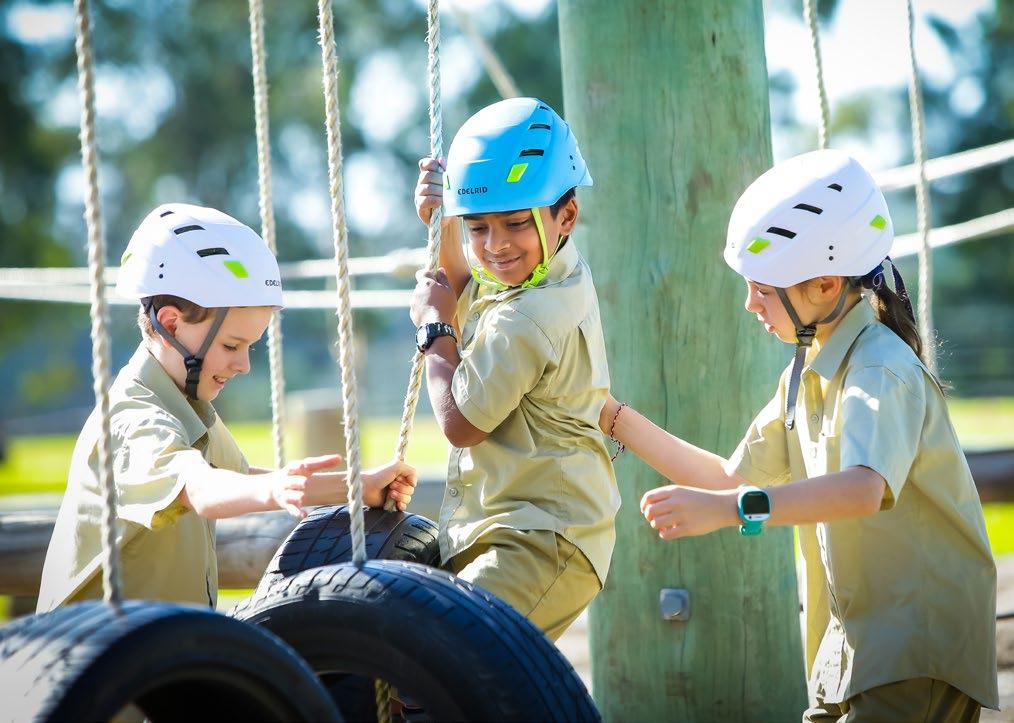
21

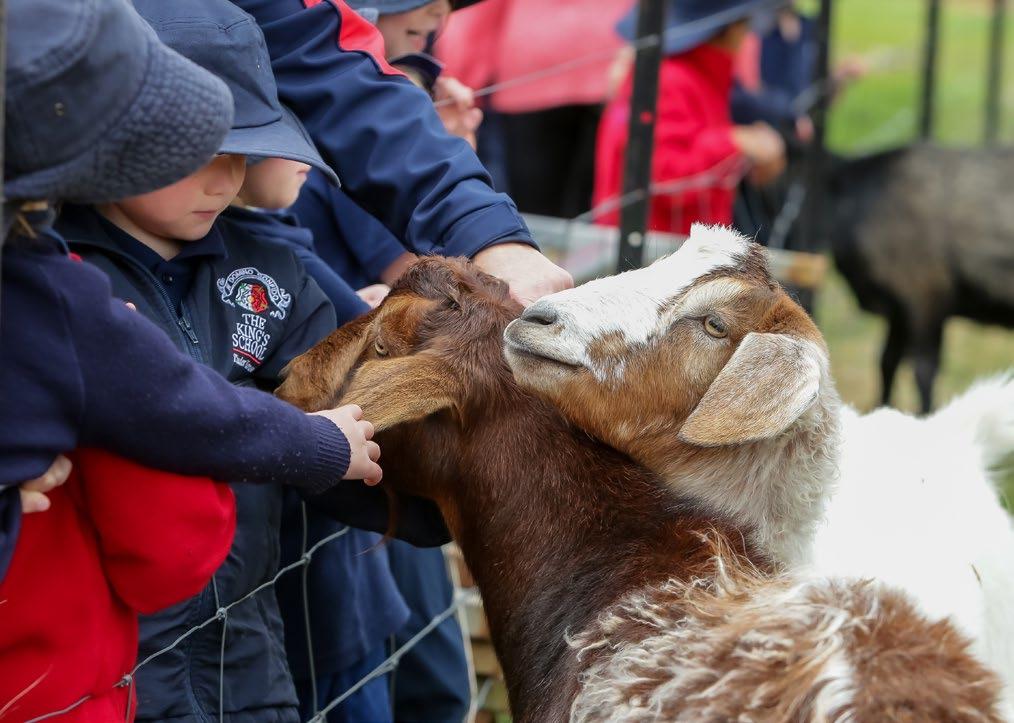
22
Kahiba
Outdoor Education has been central to a Tudor House education from its foundation. Grounded originally in the Scouts movement, it is now run internally and is called Kahiba. Activities include: archery; base building; bush furniture making; camping; canoeing; cooking; fire building; First Aid; fishing; knots; orienteering; Paddock to Plate, etc.
Kahiba (Years 3-6) and Mini Kahiba (Pre-K-2) take place each Friday afternoon 2.00 – 3.30pm.
Each student in Years 3-6 brings their Kahiba bag to school every Monday and it remains in their locker for the week.
In their Kahiba bag will be:
• Swimmers
• Towel
• PE Uniform
• Raincoat
• Kahiba Uniform
• Spare pair of runners.
KingsNet
KingsNet is the School’s communication platform that provides our community with easy to access, timely and accurate news, information and notices. Available on your desktop device at www.kingsnet. kings.edu.au or as an app downloaded from the App Store or Google Play Store. KingsNet provides:
• Access to your child’s academic reports, fee statements, leave / absences application and other King’s services such as the School calendar.
• The ability to update your child’s medical and dietary details and your own contact details.
• A dashboard personalising information and communication, including contact details for staff relevant to your child.
• Information pages for departments, courses, classes, Houses, Year Group, sports and co-curricular. Please make checking into KingsNet a regular part of your school routine to stay up to date.
Telephone and Email
A list of relevant telephone numbers and email addresses for school staff is available in the School Diary, on KingsNet and at the front of this handbook.
The following documents are available for viewing on KingsNet:
• Anti-Bullying Policy
• Child Protection Policy
• Parents’ and/or Students’ General Complaints and Grievances Resolution Procedure
• Anaphylaxis Policy.
Leave
For all leave during school hours (e.g. for a medical appointment), application should be made via KingsNet before the day for which leave is requested. As far as possible, appointments should be made for the holidays or, failing that, out of school hours.
Extra leave is not advisable during term time. However, special circumstances (such as overseas travel or compassionate leave) will be given due consideration by the Head of School. Requests should be made via KingsNet, at least one week prior, to the Head of School. Air tickets should not be purchased before leave has been approved.
Location
The School occupies 169 acres of grounds and bushland nestled in the Southern Highlands, 130kms south-west of Sydney. This setting gives students space to move, play and explore, offering the benefits of a rural setting in relative close proximity to Australia’s largest global city.
Lost Property
This is stored just inside the door of the Health Centre (“Quarter Deck”).
Medical Form
If your child has any chronic condition (e.g. anaphylaxis, allergies, asthma), please include specific information regarding his/ her condition, including an Action Plan from their Doctor, if appropriate. Details about medical history and vaccinations should be noted. Non-immunised students may be required to remain at home when the School has been notified of an outbreak of a vaccine preventable disease at school. The online Medical Form should be completed before Orientation Day.
Medications
We understand that many of our students require medication during the school day. In all circumstances, any medications, must be clearly labelled with the original pharmacist’s instructions (dosage and frequency), supplied in a Webster Pack to be given to the School nurse in the Health Centre. She will store the medications in a locked cabinet and oversee the taking of this medication.
We also have a number of students who are asthmatic and these students require a Management Plan from their doctor. A copy of this Management Plan must be given to the school nurse in the Health Centre. All students who are asthmatic must also have their puffer at school. The number of students with anaphylactic allergies is on the rise. Many of these students are allergic to, amongst other things, nuts, and we encourage all families to refrain from bringing nuts and nut products into school. This will lessen the chance of one of these students coming into contact with nuts and having a reaction.
Message To Students
If parents wish to get an URGENT message to students they should call the School Office. Administration staff will endeavour to get the message to students.
Music
Music at Tudor House plays a unique part in the life of the School. All students attend classroom Music lessons. Application forms for private instrumental tuition may be obtained from the School Office. The School can currently offer tuition on the following instruments: Double Bass, Guitar, Drums, Flute, Percussion, Violin, Saxophone, Clarinet and Piano. Private lessons are given on a weekly basis and fees are invoiced directly by the Tutor.
Four weeks’ notice is required to cease tuition. The School has some instruments for rent if need be, although parents are encouraged to buy an instrument after a year of tuition.
For further details, please contact Tudor House Music Department Mrs Bridie Taylor on (02) 4868 0005 or btaylor@kings.edu.au
23
Name Tags
We request that name tags be sewn on each article of clothing. This applies to underwear, socks, shoes, swimming costume, sports gear, sports shoes, etc. In fact, any article brought to school must be clearly labelled. Ink has not proven satisfactory, as it soon wears off. Please ensure that old name tags are removed from second-hand clothing.
Parent Information Evenings
A Parent Information meeting is held early in Term 1.
Pastoral Care
The Anti-Bullying Policy and details are included in the School Diary and is available on The King’s School website and KingsNet. Pastoral Care underpins the educational environment at Tudor House. The potential of our students will only be reached when they are learning in an environment where they feel safe, secure and in which there are clear, known, consistent boundaries. It is the intention of this document to clearly outline the procedures, roles and responsibilities of teachers, students and parents in maintaining a positive, productive learning environment at Tudor House. We take part in National Day of Action Against Violence and Bullying, RUOK? Day and address prosocial behaviour in Colour Families on a fortnightly basis.
P.E.
P.E. lessons are held throughout the week and are taught by specialist P.E. teachers. Different skills and activities occur throughout the year to develop understanding and knowledge around physical education.
Students in Years 3-6 are required to have their PE uniform at school, in their Kahiba bag.
Phones
A student may use the office phone only if absolutely necessary and when directed by a member of staff. Mobile phones are not to be used at school and, if brought, must be handed to the class teacher for safekeeping during school hours.
Plus Scores
Plus Scores are issued at the end of each Term and are sent home to parents.
Tudor House focuses on reporting effort at regular intervals, emphasising our commitment to how students learn. These focus on ‘Approaches to Learning’ and demonstrated effort in key learning areas.
School And Community
Parents are welcome at Tudor House at all times, especially for:
• Sporting events
• Concerts
• Theatrical performances
• Social events
• Assemblies
• Learning journeys
• Volunteer programs.
Tudor House welcomes the support of parents in a number of day-to-day activities. Volunteer opportunities exist in the following:
• Classrooms
• Library
• Educational Support Services (ESS)
• Parents as Partners
• Class Reps
• Tudor Rose Auxiliary.
There are a number of social activities that occur during the year that invite parental involvement, such as Year group dinners, Trivia Night, Cocktail Party, etc.
All parents and carers wishing to volunteer at the School must obtain a WWCC (Working With Children Check).
School Academic Hours
Classes commence:
Pre-Kindergarten: 8.30am for 9.00am
K-6 Classes commence: 8.30am
Recess: 10.30am – 11.00am
Lower School Lunch: 12.30 – 1.00pm
Upper School Lunch 1.30pm-2.00pm
Thursday Picnic Lunch 1.00pm – 1.30pm
Classes conclude:
Pre-Kindergarten to Year 6 at 3.30pm
School Sport from 3.30pm-5.00pm
Kindergarten to Year 2 Sport Thursdays 3.30pm-4.30pm
School Arms/Motto
The Tudor House Motto is In Domino Confido – “In God I trust”. The colours are red, white and blue – the three House Colours.
The King’s School Motto is Fortiter et Fideliter which translates as “Bravely and Faithfully”. The “IX” in the centre of the shield represents the first letters of two ancient Greek words which stand for Jesus Christ. The colours on the arms are sky blue and white, with blue representing the sky and white representing purity.
Senior Award
This award is attainable by all students in Year 6. It is awarded to a student who is working to their potential in all aspects of school life. Students submit an application to the Head of School and meet to present a personal research study on a chosen leader. Students then complete an action project that applies their learning and serves the school/wider community. All staff members are involved in the decisionmaking process for this award.
Snowsports
The Tudor House Snowsports team competes in the Regional Interschools competition in July, during the School holidays. In August, the School competes in the NSW Interschools Championships and successful competitors progress through to the National Championships in September. During August we also have Ski Club, a social family week focusing on the encouragement of skiing and snowboarding skills.
Speed Limit
The speed limit within the School grounds is 20kph. Please observe this limit.
Sport
The playing of sport is a vital part of school education at Tudor House. All K-6 students participate in sport on Thursday afternoons (3.30 – 4.30pm). Some sports train on Tuesday or Wednesday afternoon after school. Students in Years 3-6 have the option of participating in IPSHA sport on Saturdays (subject to the number of students available for a team.) A range of class sport and physical activities are provided for boys and girls in all four terms. The School encourages the K-2 students to take part in team games within their
24
local communities at weekends. Years 1–2 students are also encouraged to play football in Terms 2 and 3 for the School on Saturdays.
Sports offered at Tudor House are:
Terms 1 and 4
• Cricket (Years 3-6) Saturday morning ‘home’/’away’ Sydney and local comp
• Water Polo (Years 5-6) Tuesday afternoon 4.00 – 7.00pm local Pool
• Tennis coaching (Years K-6) (co-curricular) – at the School’s courts
• Swimming instruction and squads (co-curricular) – at the School’s pool
• Basketball – Wednesday and Friday evening at Moss Vale Indoor Basketball Centre
Terms 2 and 3
• Basketball - Wednesday and Friday evening at Moss Vale Indoor Basketball Centre
• Netball - students play in the local competition at Eridge Park on Saturday morning
• Rugby (Year 3–6) Saturday morning competition is organised with IPSHA and will include Home Games and Away Games/Sydney
• Football students from the lower school will play local games in association with the Highlands Soccer Association (HAS). Subject to numbers, children in age U11 and U12, will play Saturday games with IPSHA and will include Home Games and Away Games/Sydney
• Tennis coaching (Years K-6) (co-curricular) – at School courts
• Hockey – students play in the local competition at Welby
Students are also selected to represent the School in Swimming, Athletics, Cross Country and Snowsports.
Year 6 students may be selected to represent the School at IPSHA trials in Rugby, Cricket, and Football.
Students have the opportunity to progress to State and National levels through the Combined Independent Schools’ arrangement with the Primary Schools Sports Association (PSSA).
Sport Exemptions
Exemption from sport practice will only be granted on receipt of a note by the Head of School.
Saturday sports team selection should be regarded as a firm commitment.
Request for special exemption should be made at least one week prior and only in extenuating circumstances.
If your child is unwell on Saturday morning and unable to play sport, please contact the Deputy Head – Co-curricular by 7.00am. Contact details for the Deputy Head Co-curricular are available on KingsNet.
Exemption from other sport functions, carnivals, Saturday sport and other major functions that are part of school life, must be sought from the Head of School via email, prior to the event.
Stationery
Prior to the commencement of the new school year, families will receive a stationery and equipment. List detailing student requirements (including some text books) for the coming year.
Student Leadership
Years 5 and 6 students participate in Leadership days with The King’s School, Prep School and Tara Anglican School for Girls. Students and staff vote for the Year 6 Leadership team (Captains). School Monitors are selected following ‘Seniors’ appointments from Year 6, Term 3.
Tudor House Foundation
The Tudor House Foundation and Development Office is the body through which the philanthropic initiatives for the School are advanced. Its role is to ensure that it is investing in the School’s future The Foundation manages programs such as:
• Annual Giving
• Scholarships and Bursaries
• Building Funds and Appeals
• Bequests and Benefactions
• Parent and Community Support Group infrastructure.
The Foundation’s efforts are built upon its ability to reach out to all in The King’s School, Tudor House community. Old Tudorians, parents and past parents, staff, and friends are all an essential part of our philanthropic endeavours. The King’s School, Tudor House website: tudorhouse.nsw.edu.au/ supporting/supporting-tudor-house/
Tudor House Action Group (TAG)
TAG class representatives (from Years 2-6) meet termly to make commendations and recommendations about day-today matters at school. This meeting is ‘chaired’ by the School Captain, supported by Vice Captains and facilitated by the Head of School. The School Captain reports matters delivered at the meeting to the School.
Tudor Rose Auxiliary
All parents and carers are invited to attend the twice termly Auxiliary meetings. The Auxiliary organises community events for fun and fundraising.
Uniform
The School is proud of its uniform which dates back to the early foundation of Tudor House. Students are expected to wear the uniform properly so that the good reputation of the School is protected. More information on uniform may be found under the heading of Dress Regulations and in the Uniform Guide. A checklist of relevant uniform, sport requirements and personal items included at the end of this handbook, together with advice regarding the purchase of uniform requirements.
Uniform Guide
White Cards
These are awarded to a student who has received three good diary comments or after a particularly noteworthy act.
25
Discipline Levels at The King’s School, Tudor House
Examples of Inappropriate Behaviour
Levels School Community
Level 1
Teacher
Teacher
• Appearance: (Incorrect uniform, inappropriate hair)
• Misbehaviour: (Inappropriate games, rudeness, littering, out of bounds, chewing gum)
• Unprepared: (Homework incomplete, books missing, no equipment)
• Not completing work
• Physical / verbal actions against other students: (Pushing, jostling, making inappropriate comments.)
• Lateness: (Arriving at Specialist lesson/activity)
• General conduct in Sport/activities: (unsportsmanlike behaviour, non-co-operation with officials, not following directions set by staff)
• Out of Bounds
Level 2
Head of Boarding
Colour Housemaster /+Sportsmaster
Head of Boarding
• Foul and abusive language: (swearing, Inappropriate comments to staff and/or students)
• Minor property damage or theft (marks on desk, graffiti)
• Striking another boarder
• Disrespect and rudeness to staff
• Any other behaviour as outlined in the Boarder Code of Conduct
Colour Housemaster
• Continued examples of Level 1
• Foul and abusive language: (swearing, Inappropriate comments to staff and/or students)
• Minor property (marks on desk, graffiti)
• Striking a classmate Sportsmaster
• Attendance Issues: (failure to attend Saturday Sport/repeated lateness to Saturday Sport)
Level 3
Deputy HeadStudents and Community
Deputy Head - Students and Community
• Continued examples of Levels 1 & 2
• Gross disrespect: (Deliberate rudeness and refusal to comply)
• Property damage: (Graffiti, broken window, furniture broken.)
• Physical and Verbal Assault: (Fighting, bullying including cyber bullying, verbal abuse of student)
• Computer/Mobile phone Misconduct: (inappropriate use/Damage)
• Theft
Level 4
Head of School
Level 5
Headmaster
Head of School
• Continued examples of Levels 1, 2 & 3
• Physical and Verbal Assault: (Fighting, bullying including cyber bullying, verbal abuse of student)
• Gross disrespect to staff
• Computer Misconduct: (Inappropriate use/Damage)
• Theft
Headmaster
• Continued examples of Levels 1, 2, 3 & 4
• Serious assault/bullying
• Not applicable at this level
Colour Housemaster
• Appearance: (Incorrect uniform, in public)
• Misbehaviour: (on excursions or on transport)
• Physical / verbal actions: (pushing, rushing, not lining up at bus stop correctly)
Deputy Head - Students and Community
• Continued examples of Levels 1 & 2
Head of School
• Continued examples of Levels 1, 2 & 3
• Any behaviour that would seriously undermine the reputation of the School
Headmaster
• Continued examples of Levels 1, 2, 3 &4
• Serious assault/bullying
26
Consequences and Communication
Consequence Tudor House Communication
Teacher
• Counselling: In class/out of class
• Discuss the School Value(s) not met and how these could be worked towards
• Movement away from peers
• Apology
• Imposition: Extra work/ lunchtime
• Comment: Diary – rule reminder and warning
• Red Diary Comment
• Limited to a particular play area
Referral to Colour Housemaster
Head of Boarding
• Gating (boarder to remain under direct supervision of Boarding Staff) for a period of time
• Community Service (stick parade, light laundry duties)
Colour Housemaster
• Counselling: In class/out of class
• Remind the student of their ‘belonging’ to the school community and that living the School Values comes with ‘belonging.’Formulate strategies to meet the Values
• Withdrawal from playground
• Apology
• Comment (Warning/Red Diary Comment)
• Community Service (eg. cleaning, repairing)
• Behaviour Support Card – focus on making positive/expected behaviour choices
•Three RDCs = Detention
Referral to Deputy Head - Students and Community
Deputy Head - Students and Community
• Counselling: In class/out of class
• Conference with involved students
• Note in Diary/phone call requesting parent interview
• More than 3RDCs – contact parents – Community service/Behaviour Support Plan – focus on making positive/expected behaviour choices
• Internet privileges withdrawn (up to two weeks)
• Internal/external suspension
• Student contract and probation
Referral to Head of School
Head of School
• Counselling: In class/out of class
• Note in Diary/phone call requesting parent interview
• Detention: Internal/External Suspension
• Student Contract and Probation
Referral to Headmaster
Headmaster
• Counselling, Parent Contact
• Suspension, Expulsion
Teacher
ê èPossible Parent Contact (Diary/ParentTeacher interview/report/phone call/email and document (Synergetic) ê ê èWelfare meeting/Outsource assistance if necessary
Head of Boarding
For gating
ê èNotify referrer of Action
èParent Contact: Phone call/Email
Colour Housemaster ê ê èNotify referrer of Action ê ê ê ê èParent Contact: (Diary/ Parent Teacher interview/phone call/ email and document (Synergetic) ê ê èWelfare meeting/Outsource assistance if necessary
Deputy Head - Students and Community ê ê èNotify referrer of Action
ê èParent Contact
(Diary/Parent Teacher interview/phone call/email and document (Synergetic) ê ê è Welfare meeting/Outsource assistance if necessary
Head of School ê ê èNotify referrer of Action.
ê è Parent Contact:
(Diary/Parent Teacher interview/phone call/email and document (Synergetic) ê ê èWelfare meeting/Outsource assistance if necessary
Headmaster
• Notify referrer of action.
(Diary/Parent Teacher interview/phone call/email and document
• Outsource assistance if necessary
ê ê ê ê ê
ê ê ê
ê
ê
ê ê
ê ê
ê
ê
27
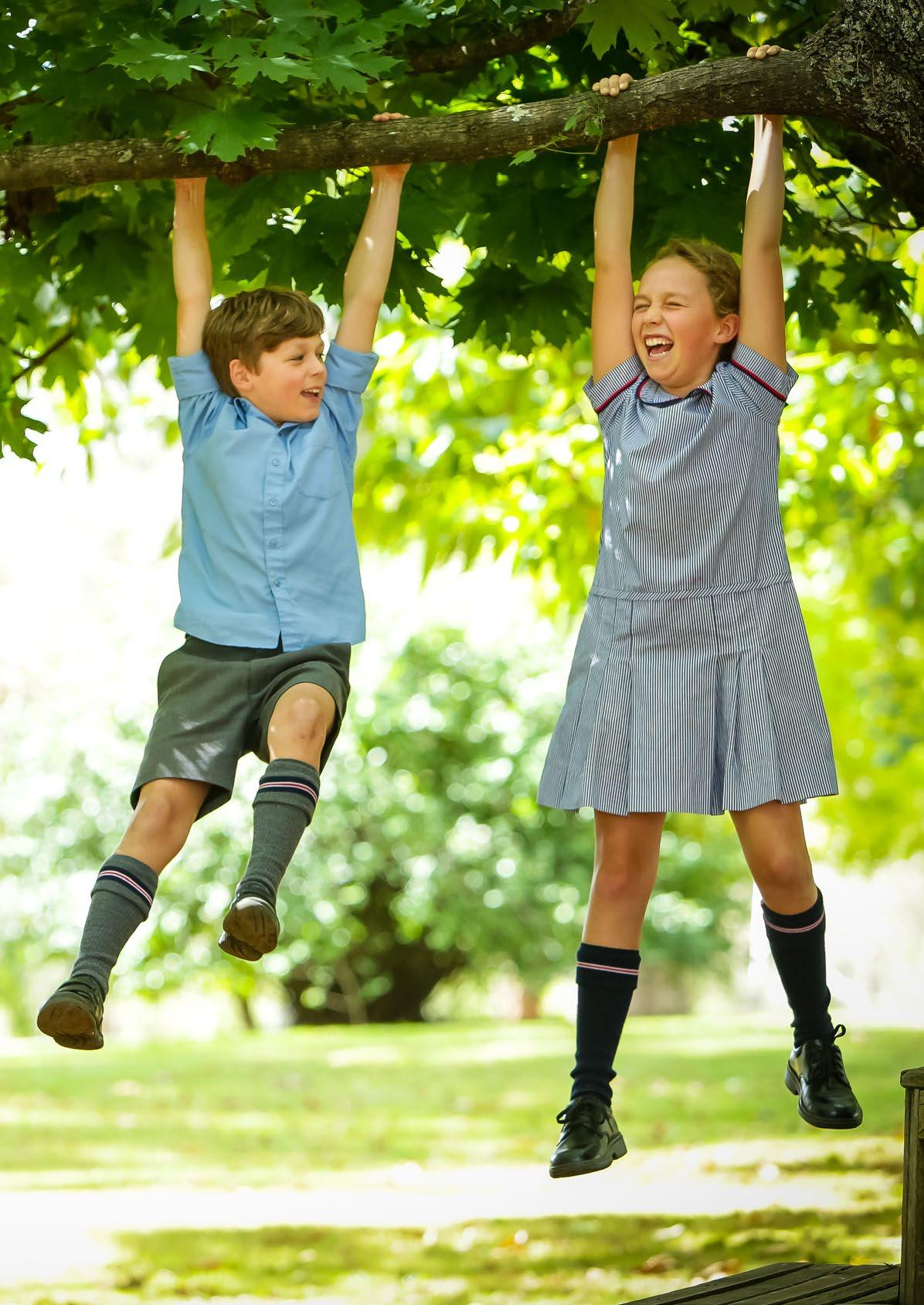
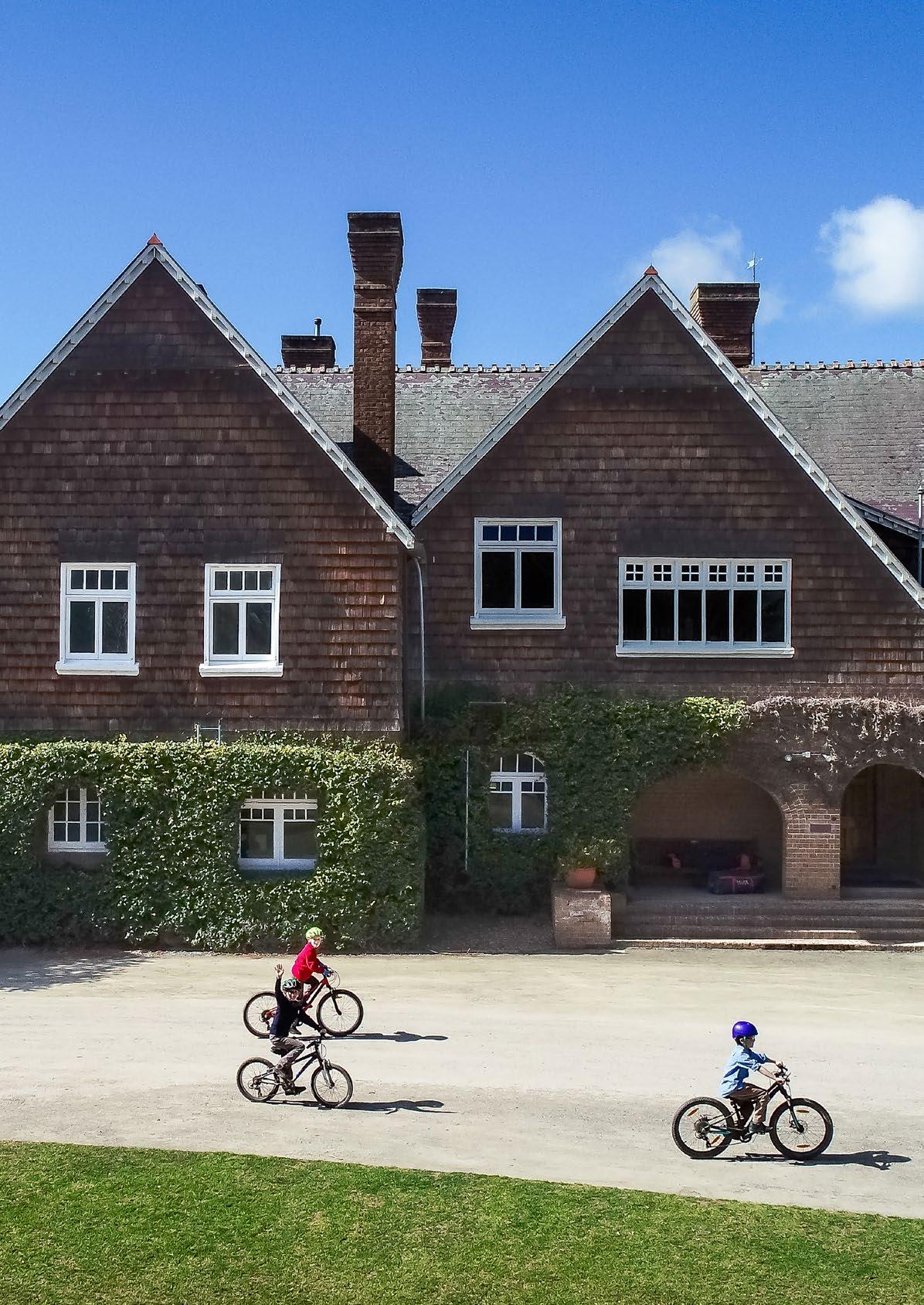

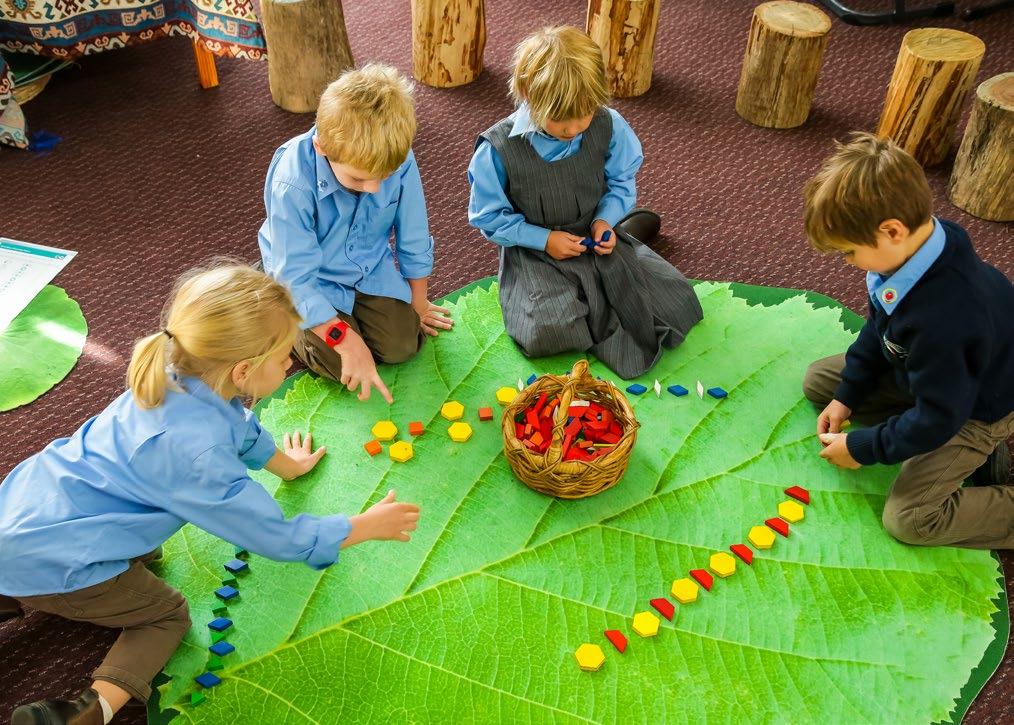
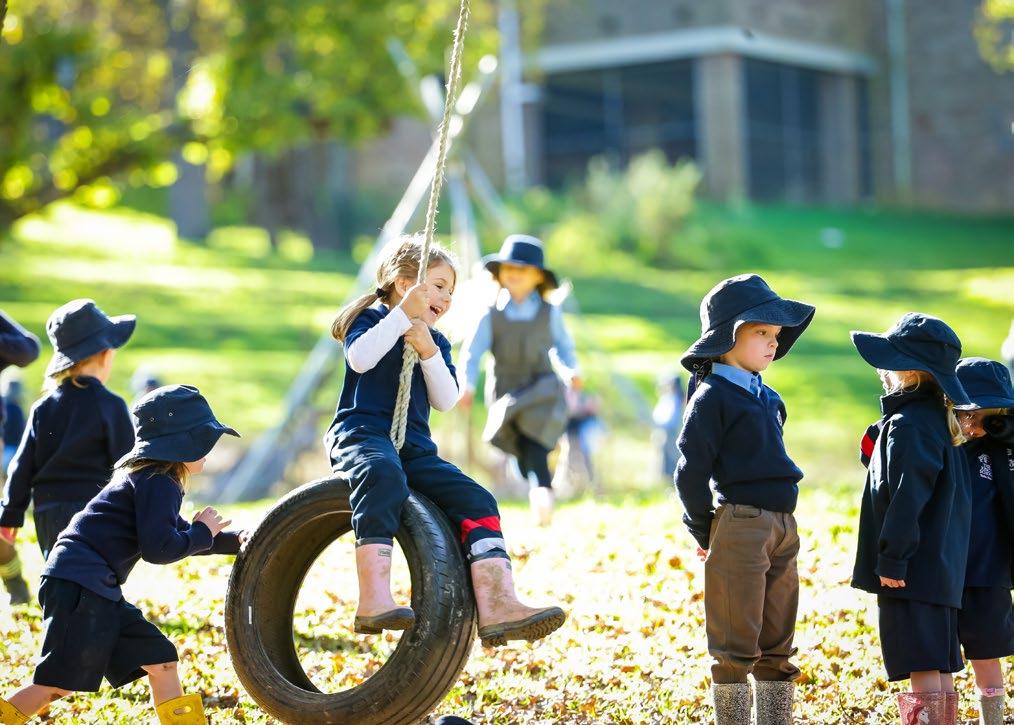

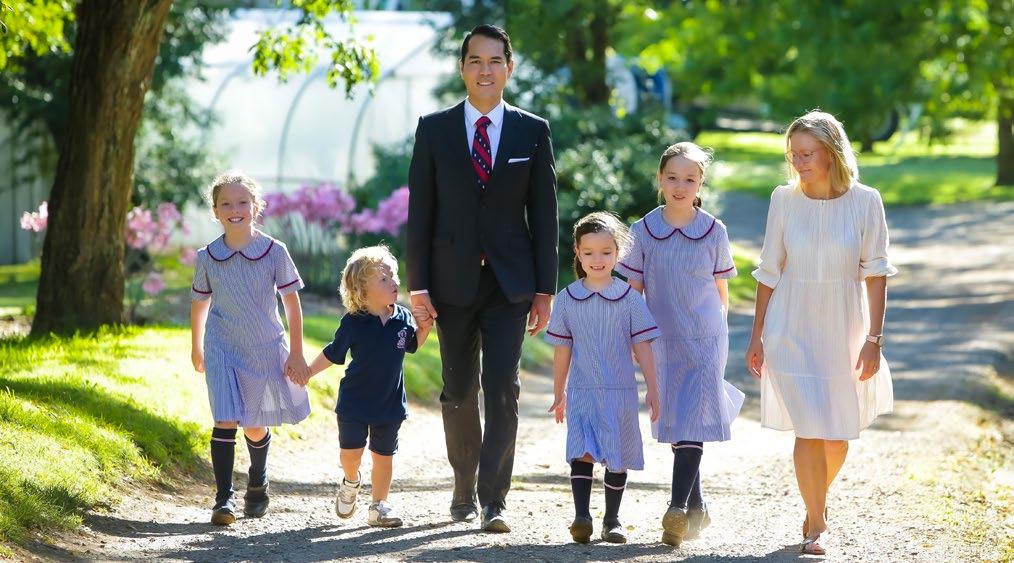 Mr Adam Larby Head of School The King’s School, Tudor House
Mr Adam Larby Head of School The King’s School, Tudor House

